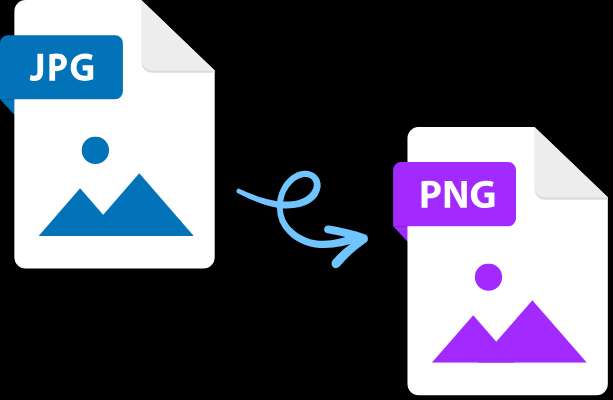Keywords Suggestion Tool
Enhance Your Website's Visibility and Reach with Intelligent Keyword Strategies
Unlocking the Potential of Keywords Suggestion Tools: A Comprehensive Guide
In the digital realm, where the battle for online visibility rages on, mastering the art of Search Engine Optimization (SEO) is paramount. At the heart of effective SEO lies the strategic use of keywords. Keywords are the building blocks that connect users with the content they seek. However, the challenge lies in identifying the right keywords that will not only attract traffic but also convert visitors into customers. This is where keyword suggestion tools come into play, serving as indispensable allies in the quest for online dominance.
Understanding Keywords and Their Significance
Before delving into the intricacies of keyword suggestion tools, it's essential to grasp the significance of keywords in the realm of SEO. Keywords are the terms or phrases that users type into search engines when seeking information, products, or services. By optimizing your content with relevant keywords, you increase the likelihood of your website appearing prominently in search engine results pages (SERPs), thereby driving organic traffic to your site.
The Evolution of Keyword Suggestion Tools
In the early days of SEO, keyword research was a manual and often laborious process. SEO professionals would brainstorm potential keywords, analyze competitor websites, and rely on intuition to identify promising keywords. However, as the field of SEO matured and technology advanced, a new breed of tools emerged to streamline the keyword research process.
Today, there is a plethora of keyword suggestion tools available, ranging from simple, free options to sophisticated, subscription-based platforms. These tools leverage data from search engines, user queries, and other sources to provide insights into keyword popularity, competition, and relevance. Some of the most popular keyword suggestion tools include Google Keyword Planner, SEMrush, Ahrefs, Moz Keyword Explorer, and KeywordTool.io, among others.
The Role of Keyword Suggestion Tools in SEO
Keyword suggestion tools play a multifaceted role in SEO, offering a wide range of functionalities to help optimize your website for search engines. Here are some key ways in which these tools can benefit your SEO strategy:
-
Keyword Discovery: Keyword suggestion tools help you uncover new keyword opportunities that you may not have considered otherwise. By entering seed keywords or topics relevant to your niche, you can generate a list of related keywords along with metrics such as search volume, competition level, and estimated traffic potential.
-
Competitor Analysis: Many keyword suggestion tools allow you to spy on your competitors and unearth the keywords they are targeting. By analyzing competitor keywords, you can identify gaps in your own keyword strategy and devise ways to outperform them in search rankings.
-
Long-Tail Keyword Research: Long-tail keywords are specific, often longer phrases that cater to niche audiences. Keyword suggestion tools excel at identifying long-tail keyword opportunities, which can be valuable for attracting highly targeted traffic with less competition.
-
Content Optimization: Armed with insights from keyword suggestion tools, you can optimize your website content to align with the keywords that your target audience is searching for. This includes optimizing meta tags, headings, body copy, and other on-page elements to improve your chances of ranking for relevant searches.
-
PPC Campaigns: Keyword suggestion tools are not limited to organic SEO; they are also invaluable for pay-per-click (PPC) advertising campaigns. By identifying high-converting keywords with low competition, you can maximize the effectiveness of your PPC campaigns and minimize ad spend wastage.
Best Practices for Using Keyword Suggestion Tools
While keyword suggestion tools offer immense potential for enhancing your SEO efforts, it's important to use them judiciously and adhere to best practices. Here are some tips to make the most out of these tools:
-
Focus on Relevance: Prioritize relevance when selecting keywords for your website. Choose keywords that accurately reflect the content and intent of your pages, ensuring a seamless user experience.
-
Balance Search Volume and Competition: Aim for keywords with a healthy balance of search volume and competition. High-volume keywords may attract more traffic, but they often come with fierce competition. Conversely, low-volume keywords may be easier to rank for but may not drive significant traffic. Look for keywords that strike the right balance for your goals.
-
Embrace Long-Tail Keywords: Don't overlook the power of long-tail keywords. While they may have lower search volume individually, collectively they can drive substantial traffic and often have higher conversion rates due to their specificity.
-
Stay Updated: SEO is an ever-evolving field, and search trends can change rapidly. Keep abreast of algorithm updates, industry trends, and shifts in user behavior to adapt your keyword strategy accordingly.
-
Combine Tools for Comprehensive Insights: No single keyword suggestion tool can provide all the answers. Experiment with different tools and combine their insights to gain a comprehensive understanding of your target keywords and audience.
Conclusion
In the competitive landscape of online marketing, the strategic use of keywords is indispensable for achieving success. Keyword suggestion tools serve as indispensable aids in this endeavor, empowering website owners and SEO professionals to uncover valuable insights, optimize their content, and stay ahead of the curve. By leveraging the power of these tools effectively and adhering to best practices, you can elevate your website's visibility, attract more traffic, and ultimately drive business growth in the digital age.






















